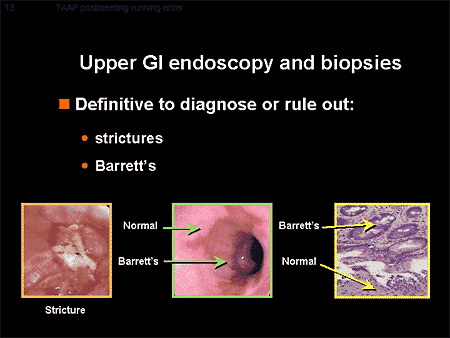Upper endoscopy for acid reflux disease upper endoscopy is a diagnostic procedure that uses a lighted scope to examine the esophagus, stomach and small intestine endoscopy is often used to diagnose gastroesophageal reflux disease (gerd) and determine the extent of damage caused by acid reflux. Endoscopy acid reflux disease. Upper endoscopy is generally used for patients with acid reflux who do not respond to medicine (proton pump inhibitors) to decrease gastric acid production for a period of four to eight weeks, or.
endoscopy acid reflux disease
Gerd surgery laparoscopic anti-reflux surgery for gerd may involve a procedure to reinforce the lower esophageal sphincter, called nissen fundoplication in this procedure, the surgeon wraps the top of the stomach around the lower esophagus after reducing the hiatal hernia, if present. Gastroesophageal reflux disease (gerd) occurs when stomach acid frequently flows back into the tube connecting your mouth and stomach (esophagus). this backwash (acid reflux) can irritate the lining of your esophagus. many people experience acid reflux from time to time.. Damage caused by gastro-oesophageal acid reflux disease (gord) non-ulcer dyspepsia (indigestion/pain not caused by an ulcer) during the investigation, some tissue samples (biopsies) from the lining of your upper digestive tract may need to be taken for further testing. this is painless and will not cause discomfort..







